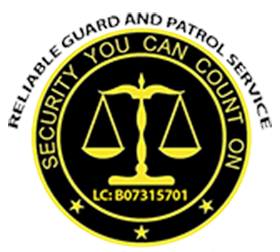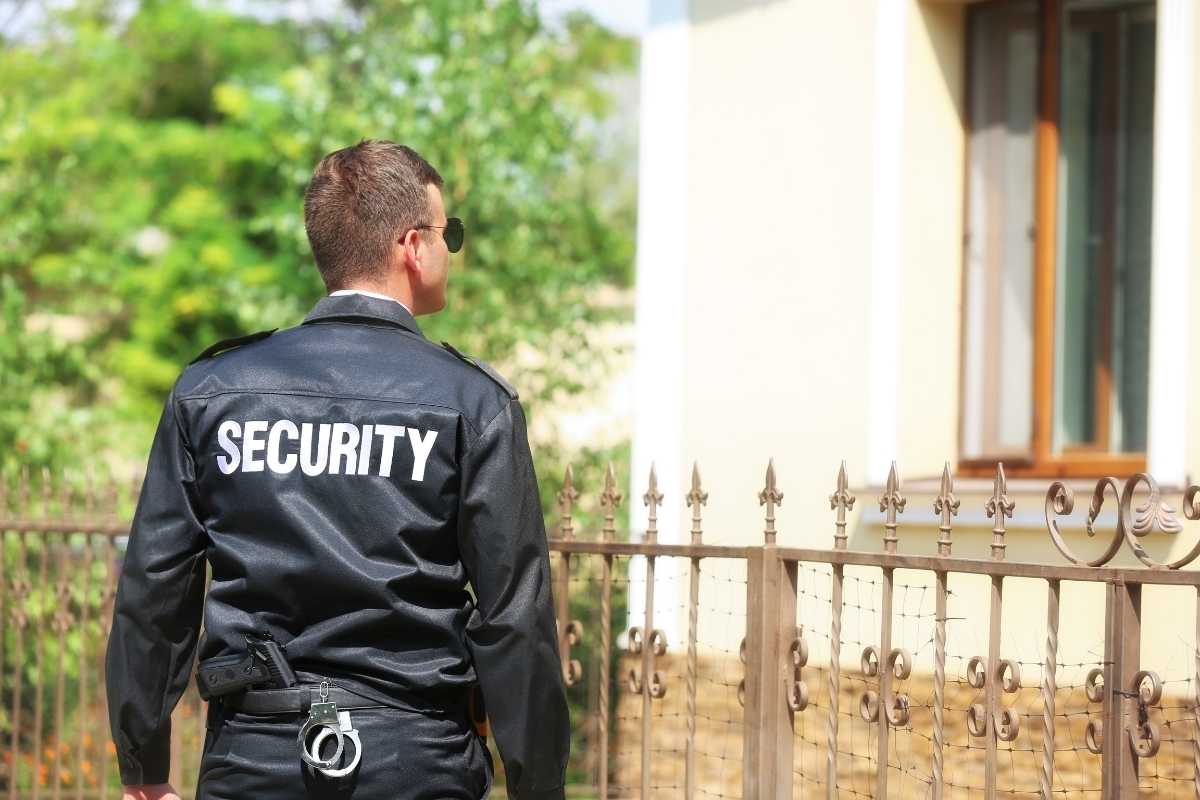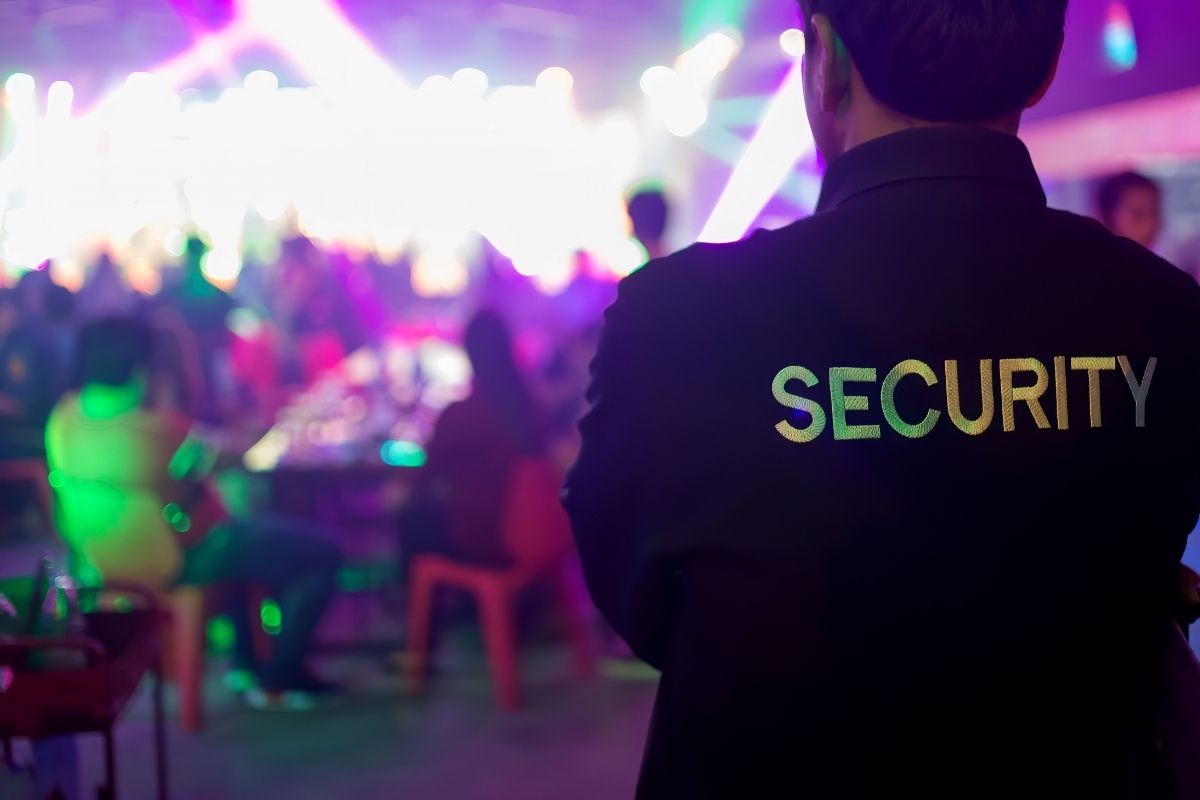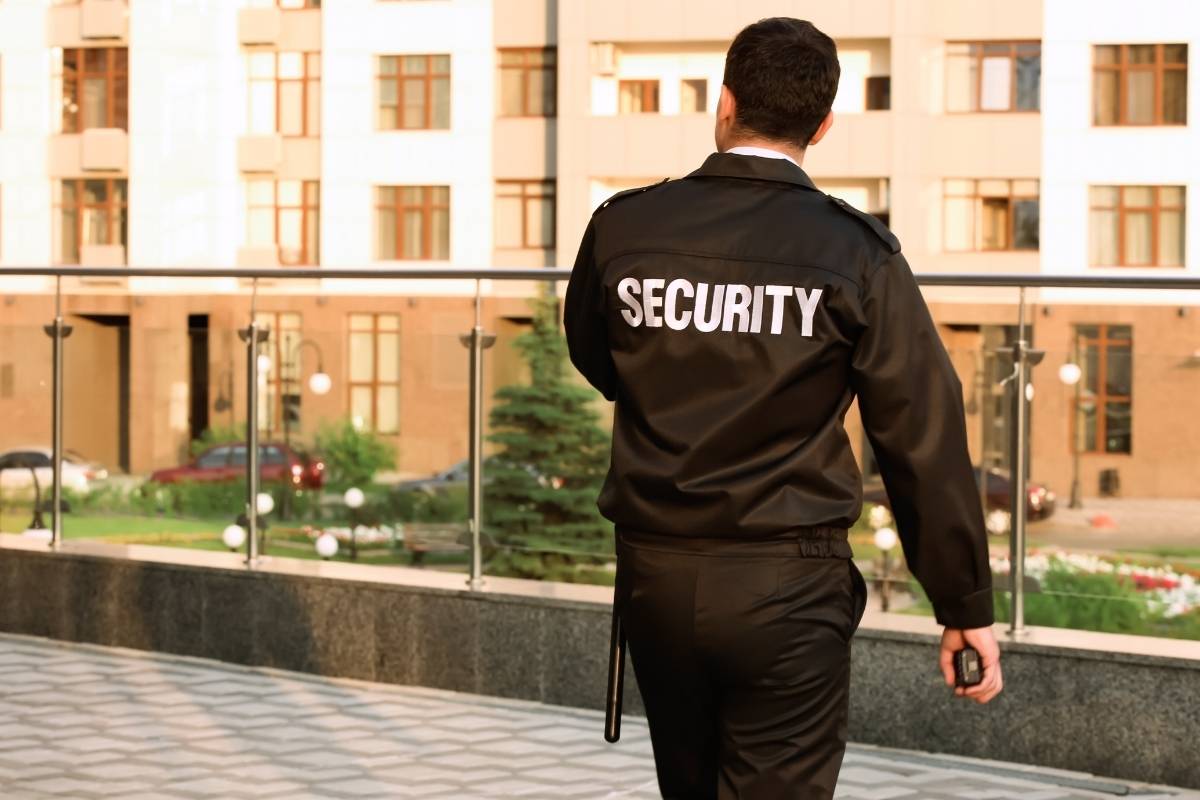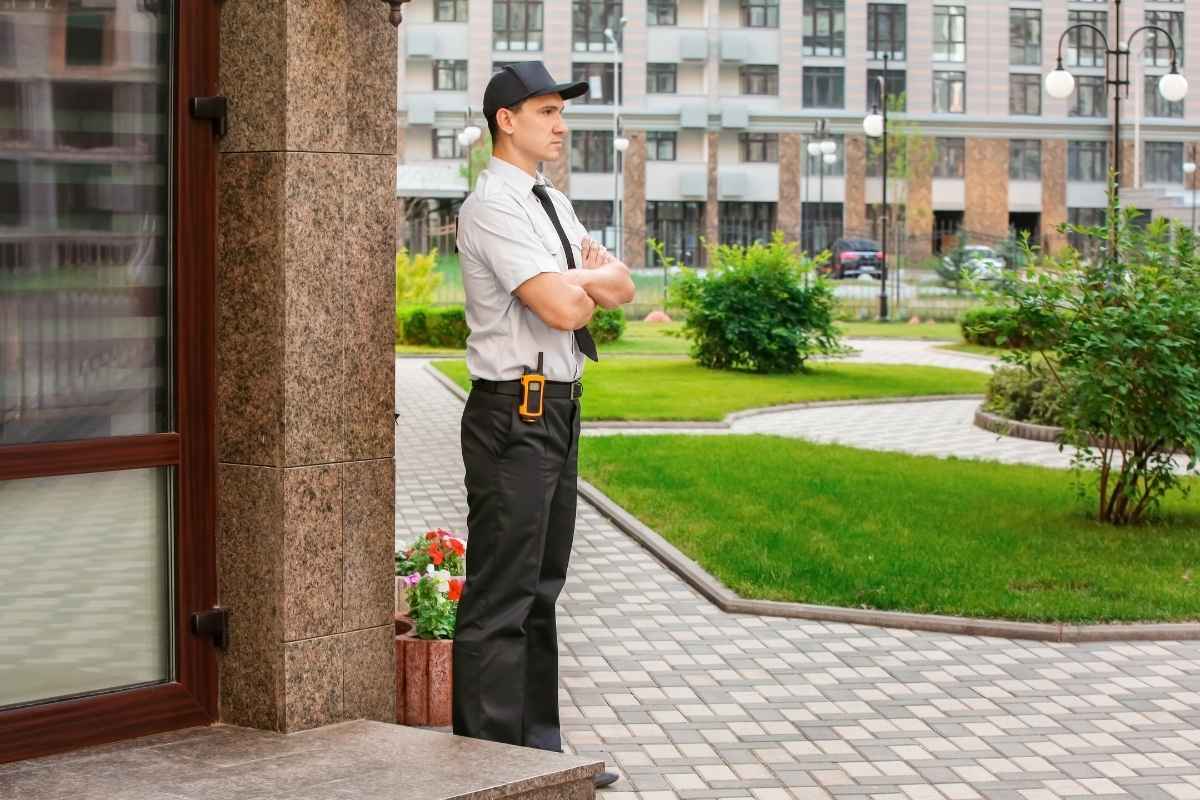
- Sat, Sep 2025
- |
- Reliable Houston Security Guard Service, Inc
Security guards are not officially classified as first responders by government designation, unlike police officers, firefighters, and EMTs who work within the Emergency Medical Services (EMS) system. However, professional security services in Houston often serve as situational first responders when emergencies occur at their assigned locations, providing immediate assistance before official help arrives.
Key Facts:
- Official Status: Security guards lack formal first responder designation in most jurisdictions
- Practical Role: They frequently become the first on-scene responders at their facilities
- Critical Training: With proper CPR, AED, and first aid certification, security guards can effectively bridge the gap until EMS arrives
- Response Time: On-site security often responds faster than dispatched emergency services
- Legal Authority: Security guards operate with limited legal protections compared to designated first responders
While not government-designated first responders, properly trained security guards serve as essential emergency support personnel who can perform life-saving interventions including CPR, first aid, evacuation procedures, and crowd control. Their immediate availability and site-specific knowledge make them valuable partners to official emergency services during crisis situations.
What Makes Someone a First Responder?
Law enforcement officers, firefighters, and EMTs receive official government designation as first responders. These professionals complete extensive training and certification programs for emergency response duties. They work within the Emergency Medical Services system to provide coordinated emergency care. This system allows them to be dispatched quickly to emergency locations nationwide. Their role includes delivering critical pre-hospital medical care to those in need.
Using this official definition, security guards do not qualify as government-designated first responders currently. However, they often become situational first responders when emergencies occur at their locations. Being first on scene gives them the opportunity to provide immediate assistance effectively. This positioning makes them valuable contributors to emergency response efforts in many situations, as recognized by ASIS International, the leading security industry organization.
Proper training becomes essential for security guards to handle first responder duties competently. Official first responders complete comprehensive certification programs to prepare for emergency situations effectively.
- CPR certification for adults, children, and infants
- AED operation and maintenance training
- First aid techniques for various injury types
- Trauma response for severe emergency cases
- Basic life support medical procedures
- Advanced life support protocols
- Emergency medical response coordination
Security guards can receive similar training and certifications to act as first responders properly. This preparation helps them provide assistance until official authorities arrive on scene. They lack formal first responder designation but can still contribute meaningfully to emergency situations.
Some armed security guard services receive advanced training that exceeds basic emergency response requirements significantly. Private security teams can often respond to emergencies faster than official first responders. This quick response time allows them to prevent small incidents from becoming major disasters. Police and firefighters often recognize security personnel for their life-saving contributions during emergencies.
Why Security Guards Are Essential During Emergencies
Security guards are not government-designated first responders, but effective incident response often depends on their actions. Their immediate availability can make the difference between minor incidents and major disasters. Having an on-site presence as emergencies unfold in real time ensures faster response that can save lives. This quick response time gives security guards a crucial advantage in emergency situations, particularly at construction sites where hazards are prevalent.
Guards who receive proper training and licensing offer adaptable services across various industries and locations. Their versatility allows them to handle different types of emergencies based on their specific environment. Heightened preparedness through comprehensive training can reduce danger and prevent harmful outcomes in emergency scenarios. Well-prepared security guards serve as the critical first line of defense when disasters strike unexpectedly, following guidelines from the Security Industry Association.
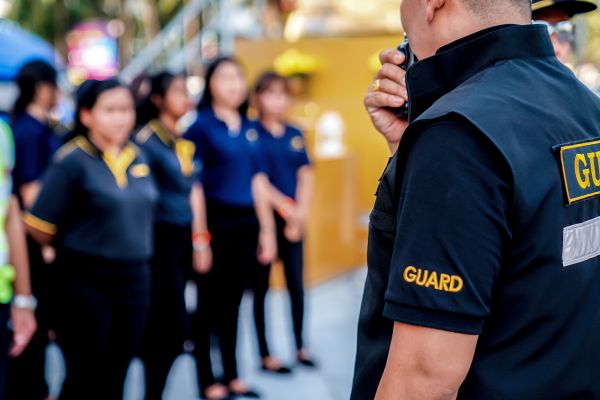
Main Emergency Duties of Security Guards
Businesses and organizations like hospitals, retail stores, airports, schools, and offices need specialized guard services. Each location requires security guards trained for their specific environment and potential risks. Daily private security responsibilities help maintain safety and order throughout various facilities.
- Preventive patrol activities
- Video surveillance monitoring and dispatch service coordination
- Parking enforcement and traffic control
- Incident response and detailed reporting procedures
- First aid administration and general safety oversight
- Wayfinding assistance and customer service support
- Courteous enforcement of rules and regulations
These routine duties prepare security guards for handling more complex situations when needed. Emergency situations often require security guards to expand their role beyond regular responsibilities.
When emergencies occur, unarmed security personnel in Houston may need to take on additional critical responsibilities. Once proper authorities receive notification, guards with appropriate training can provide lifesaving medical care. Properly trained and certified guards can deliver CPR, AED operation, and first aid to accident victims effectively. Advanced training programs help prepare guards for emergency response across different industry settings. These specialized courses ensure guards can handle various emergency scenarios with confidence and competence.
Security guards with de-escalation training handle non-compliant and potentially violent individuals more effectively. This training also prepares them to manage crowd control situations during emergencies or events. Proper preparation helps prevent minor incidents from escalating into major security threats or dangerous situations.
Both unarmed and armed guards need proper training for situations they expect to manage regularly. Understanding use of force limits within their role and jurisdiction remains critically important. Clear guidelines help guards make appropriate decisions while maintaining safety for everyone involved during emergency situations, as outlined by OSHA safety standards.
Quick Response During Crisis Situations
Security guards can take on critical first responder roles before official authorities arrive on scene. They provide valuable support to law enforcement, firefighters, and EMTs upon their arrival. Immediate response activities include evacuation procedures, crowd control management, and first aid delivery to victims. Their quick action can prevent situations from worsening while professional help is on the way.
For example, if a patient in a hospital attacks a healthcare provider, security guards may neutralize threats. They protect healthcare workers from harm and ensure patient safety during volatile incidents. Similarly, if an office worker suffers a heart attack, trained guards can deliver lifesaving care. Certified guards provide CPR and first aid until professional first responders arrive to take over treatment. This is particularly important for event security services where large crowds gather.
Preventing Disasters Before They Happen
Security guards positioned on scene can prevent tragedies through proactive monitoring and quick intervention. A well-planned security program combines trained personnel and advanced technology for maximum effectiveness. This combination allows security teams to identify and address potential threats before they escalate, as detailed in reports by Security Today.
Security guards with proper training can minimize safety hazards by accessing emergency equipment quickly. They understand how to properly cordon off dangerous areas to limit public exposure effectively. In remote locations, security guards with first aid and CPR training often serve as designated responders. They provide critical care until EMS professionals can reach the scene and take control.
Working Together with Emergency Services
When emergency response teams arrive, security guards transition to providing valuable collaborative support services immediately. Their familiarity with the location makes them essential partners for incoming emergency personnel, especially at shopping centers and hotels in Houston.
Security guards support authorities by managing crowds, securing access points, and escorting first responders through facilities. They perform other tasks as requested by emergency team leaders during active situations. The continued presence of well-trained guards throughout emergencies helps prevent further escalation of problems. They monitor developing situations and provide quick responses to new issues that arise unexpectedly.
Security guards sometimes participate in standby capacity for helicopters landing or taking off safely. This positioning allows them to send out emergency notifications if mechanical problems or accidents occur, following protocols established by the National Association of Security Companies.
Special Training and Equipment Requirements
Security guards’ training and certification requirements vary by state, company, and individual client needs significantly. However, both unarmed and armed guards commonly receive basic emergency response training as standard preparation. This training ensures they can handle various emergency situations that may occur at their assigned locations, particularly in warehouse facilities.
De-escalation training serves as an important method for preventing verbal altercations from becoming physical violence. These skills help security guards manage tense situations before they require emergency intervention.
Security professionals increasingly receive training on security equipment and advanced technology systems for enhanced effectiveness. This includes CCTV camera operation, access control systems, and various alarm technologies that businesses rely on. Modern security operations depend heavily on these technological tools for comprehensive property protection and monitoring capabilities, as reported by Infosecurity Magazine.
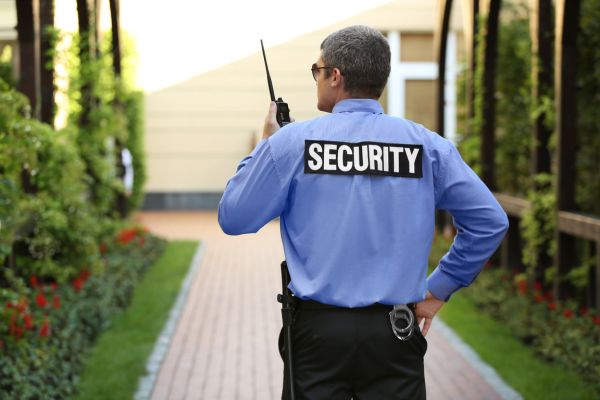
Understanding Legal and Practical Limits
Government-designated first responders receive dispatch through the EMS system for emergency situations nationwide. These official emergency personnel have extensive training, specialized equipment, and legal authority to handle complex situations safely. They operate under established protocols that ensure coordinated response across different agencies and jurisdictions effectively. Their certification allows them to make critical medical decisions and perform advanced procedures during emergencies. This official status provides them with legal protections not available to private security.
Security guards with proper training and certifications provide emergency response on-site until authorities arrive at locations. However, several practical and legal limitations affect the services security providers in Pearland TX can offer clients effectively. These restrictions help define the boundaries of what security guards can legally accomplish during emergencies. Understanding these limitations protects both security companies and their clients from potential legal issues. Clear boundaries also help security guards make appropriate decisions when emergency situations arise unexpectedly. Proper awareness ensures guards operate within their legal authority while still providing valuable assistance, in accordance with Department of Labor guidelines.
What Security Guards Can Actually Do
Businesses seeking comprehensive security guard services must clearly define what they want, need, and expect guards to accomplish effectively. This understanding becomes the foundation for determining appropriate training levels and guard qualifications for specific roles. Clear expectations help prevent confusion and ensure security personnel can meet actual job requirements successfully. Proper planning also helps businesses avoid liability issues and ensures guards operate within legal boundaries.
- Define clear job expectations and responsibilities for each position
- Match guard capabilities with actual requirements and facility needs
- Determine appropriate training levels needed for specific situations
- Establish emergency response protocols and communication procedures
- Set boundaries for guard authority and actions within jurisdictions
- Create detailed job descriptions that outline duties and limitations
- Develop performance standards and evaluation criteria for guards
Some security guards operate under limited “observe and report” responsibilities during their assigned duties effectively. Personnel in this capacity focus on monitoring rather than direct intervention in dangerous situations. Their primary role involves monitoring situations and communicating important information to proper authorities when needed. This approach helps maintain safety while ensuring trained professionals handle complex emergency situations appropriately. Well-defined roles help guards understand exactly what they should and shouldn’t do during incidents.
Missing Training and Equipment Issues
Any expectations placed on security officers in Sugar Land TX for emergency response must pair with proper training programs consistently. Appropriate tools and equipment also become essential for guards to handle emergency situations effectively and safely. Without these resources, security guards cannot perform advanced emergency response duties safely or successfully in crisis situations. Inadequate preparation can lead to dangerous outcomes and potential liability for both guards and employers.
- Provide proper emergency response training programs tailored to specific environments
- Supply appropriate tools and equipment for various emergency situations
- Match guard capabilities with expected duties and responsibilities accurately
- Understand limitations of unarmed versus armed personnel in different scenarios
- Train guards on when to engage threats or prioritize safety measures
- Ensure regular training updates and certification renewals for all personnel
- Conduct realistic drills and scenarios to test emergency preparedness
For example, expecting an unarmed security guard to directly engage an active shooter would be unreasonable. In this situation, guards lack proper equipment and specialized training for such dangerous confrontations. Proper training helps guards understand when to engage and when to prioritize other safety measures instead. This knowledge protects both the guards and the people they serve during emergencies, as recommended by the Private Security Professionals of America.
Limited Legal Protection Coverage
Security guards do not share the same legal protections and immunities that designated first responders receive. Understanding a guard’s authority limits within specific facilities and jurisdictions becomes critically important for employers. This information allows companies to provide appropriate training and prevents guards from exceeding their legal authority. Proper legal awareness helps protect both building security services and their clients from potential lawsuits.
- Know guard authority limits in specific jurisdictions and local regulations
- Understand differences from official first responder protections and immunities
- Recognize qualified immunity limitations for security personnel in various situations
- Provide appropriate training based on legal boundaries and local laws
- Review liability insurance coverage for security operations and personnel
- Establish clear protocols for interacting with law enforcement and emergency services
Security guards receive protection in some cases when they meet specific legal criteria and requirements. However, this protection remains more limited compared to official first responders in most jurisdictions nationwide. Companies must understand these limitations to provide adequate insurance coverage and legal support. Regular legal training helps guards make informed decisions while performing their duties responsibly, maintaining standards verified by the Better Business Bureau of Houston.
Conclusion
Security guards play a vital role in emergency response even without official first responder designation nationwide. Their on-site presence and quick response capabilities make them invaluable during crisis situations across industries. Proper training in CPR, first aid, and emergency protocols transforms security guards into effective first-line responders. When equipped with the right skills and knowledge, they can save lives while waiting for professional emergency services to arrive safely. To learn more about us and our commitment to emergency preparedness, visit our website.
The future of security services lies in comprehensive training programs and clear understanding of legal boundaries. Companies investing in advanced emergency response training for their security teams create safer work environments for everyone involved, as promoted by the Greater Houston Partnership. While security guards may not carry the official title of first responders, their contributions to emergency preparedness and crisis management remain absolutely essential for businesses. Smart businesses recognize that well-trained security guards are critical partners in maintaining public safety and protecting lives during emergencies. To learn more about professional security services, contact us or visit our services page to explore how we can help protect your facility.
FAQs
Can security guards legally perform CPR and first aid during emergencies?
Yes, security guards can perform CPR and first aid when properly trained and certified. Good Samaritan laws typically protect them when they provide emergency care in good faith.
What’s the difference between security guards and official first responders?
Official first responders receive government designation and work within the EMS system for coordinated response. Security guards lack this official status but often respond first at their assigned locations.
Do security guards need special training to handle emergency situations?
Proper emergency response training becomes essential for security guards to act effectively during crises. Training should include CPR, AED operation, first aid, and de-escalation techniques for comprehensive preparedness.
Are armed security guards better equipped to handle emergencies than unarmed guards?
Both armed and unarmed guards need appropriate training for their specific roles and situations. The key difference lies in proper training and equipment matching their expected responsibilities.
What legal protections do security guards have when responding to emergencies?
Security guards have limited legal protections compared to official first responders in most jurisdictions. They may receive some protection under Good Samaritan laws when meeting specific criteria.
